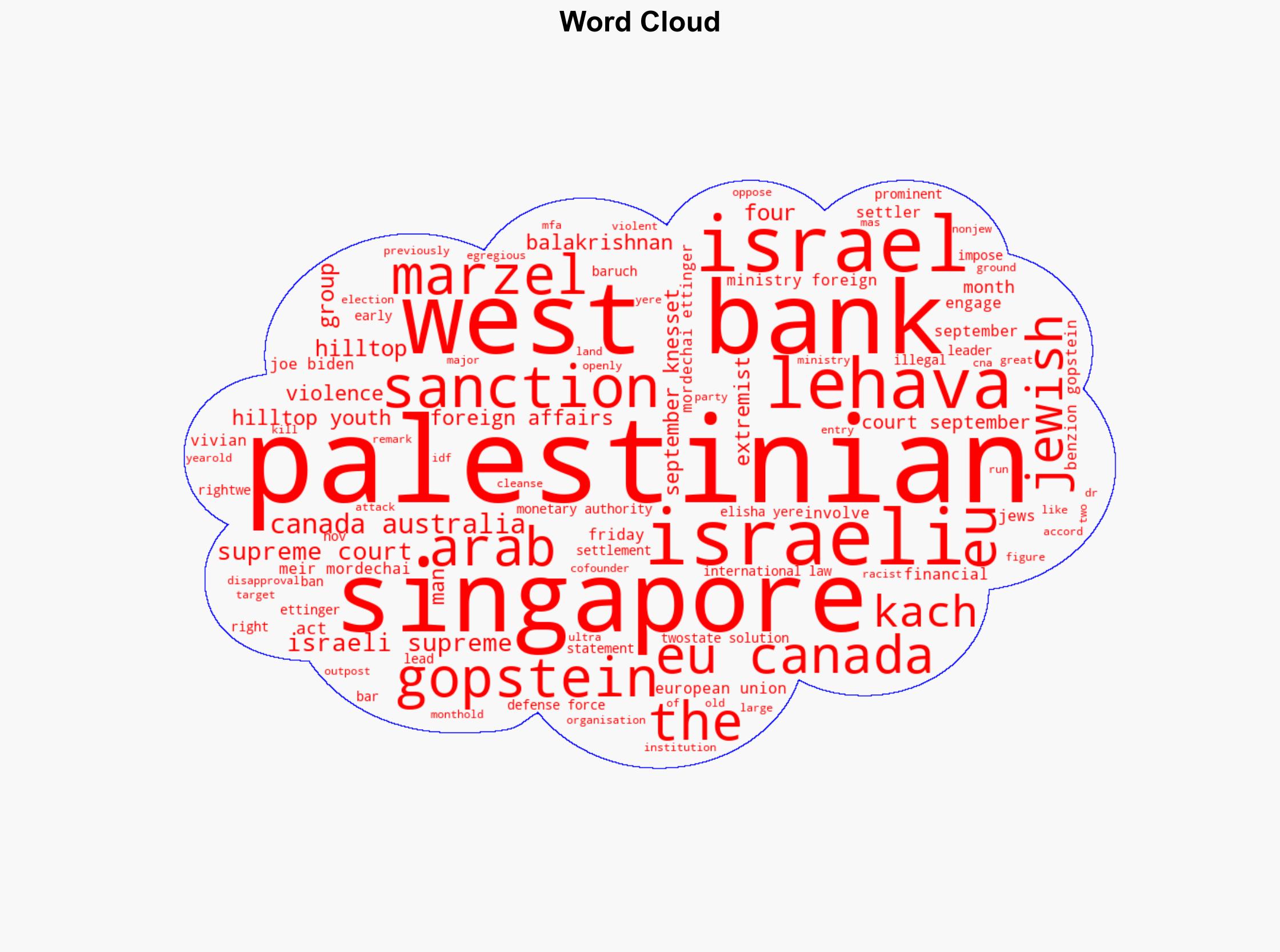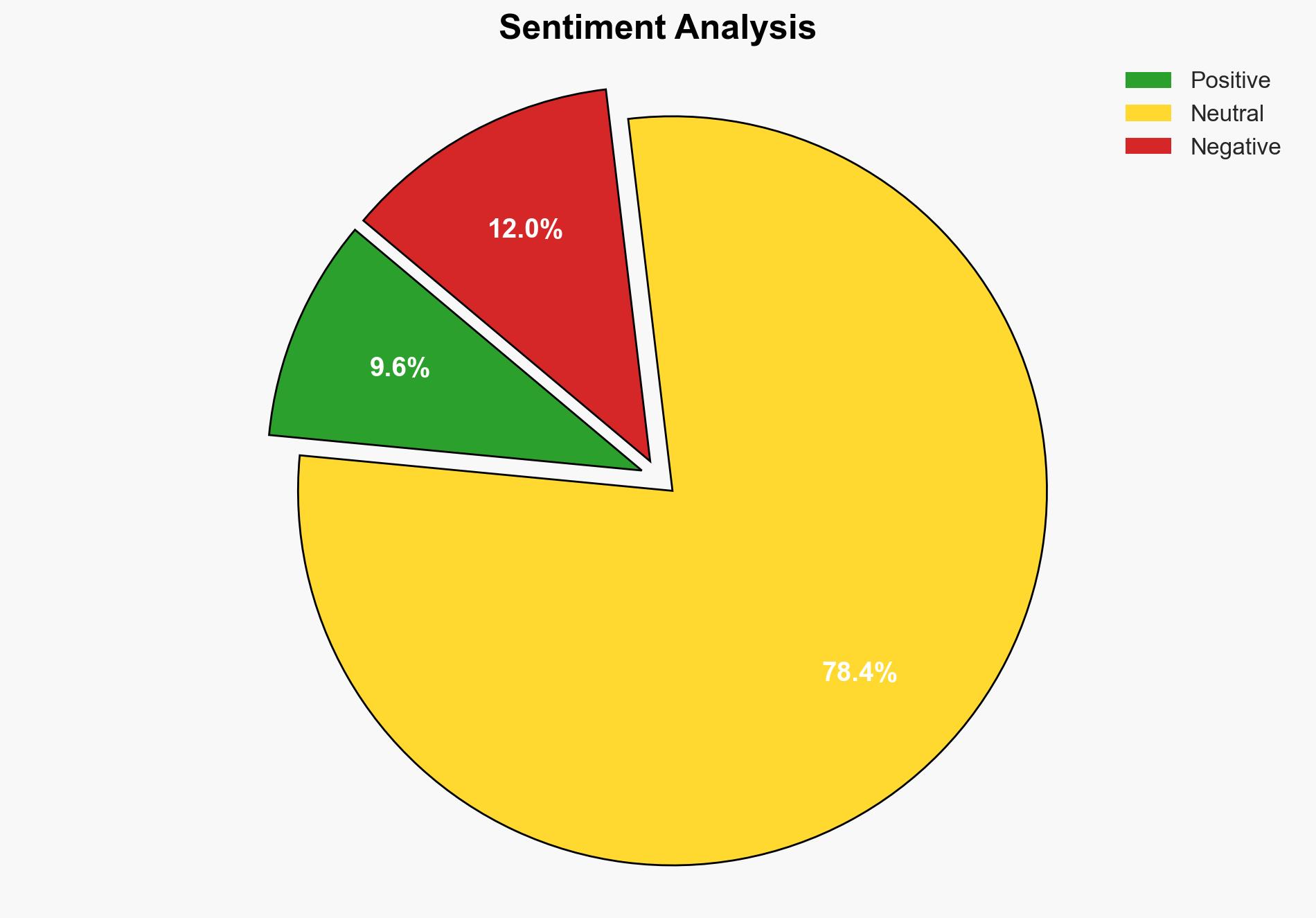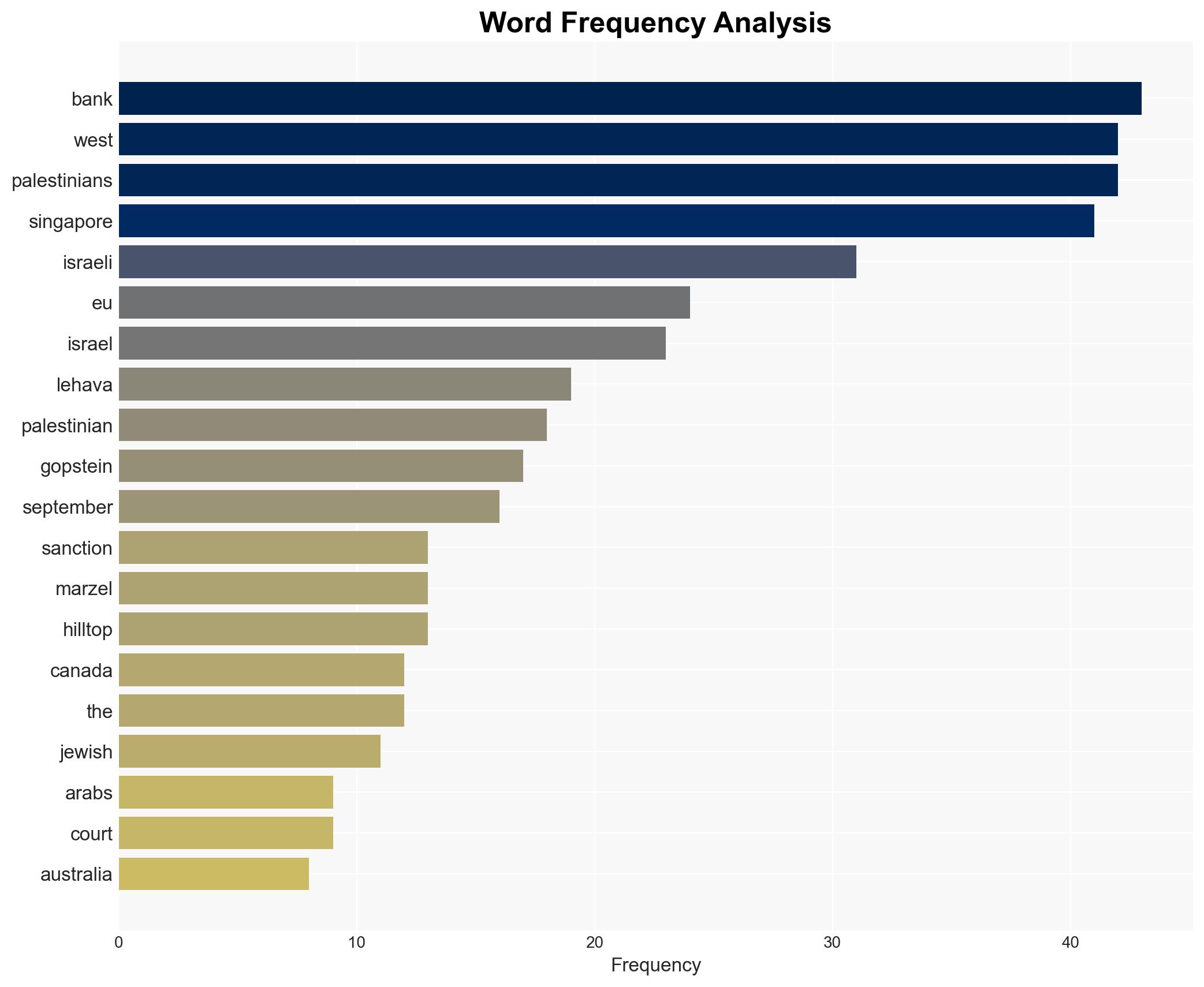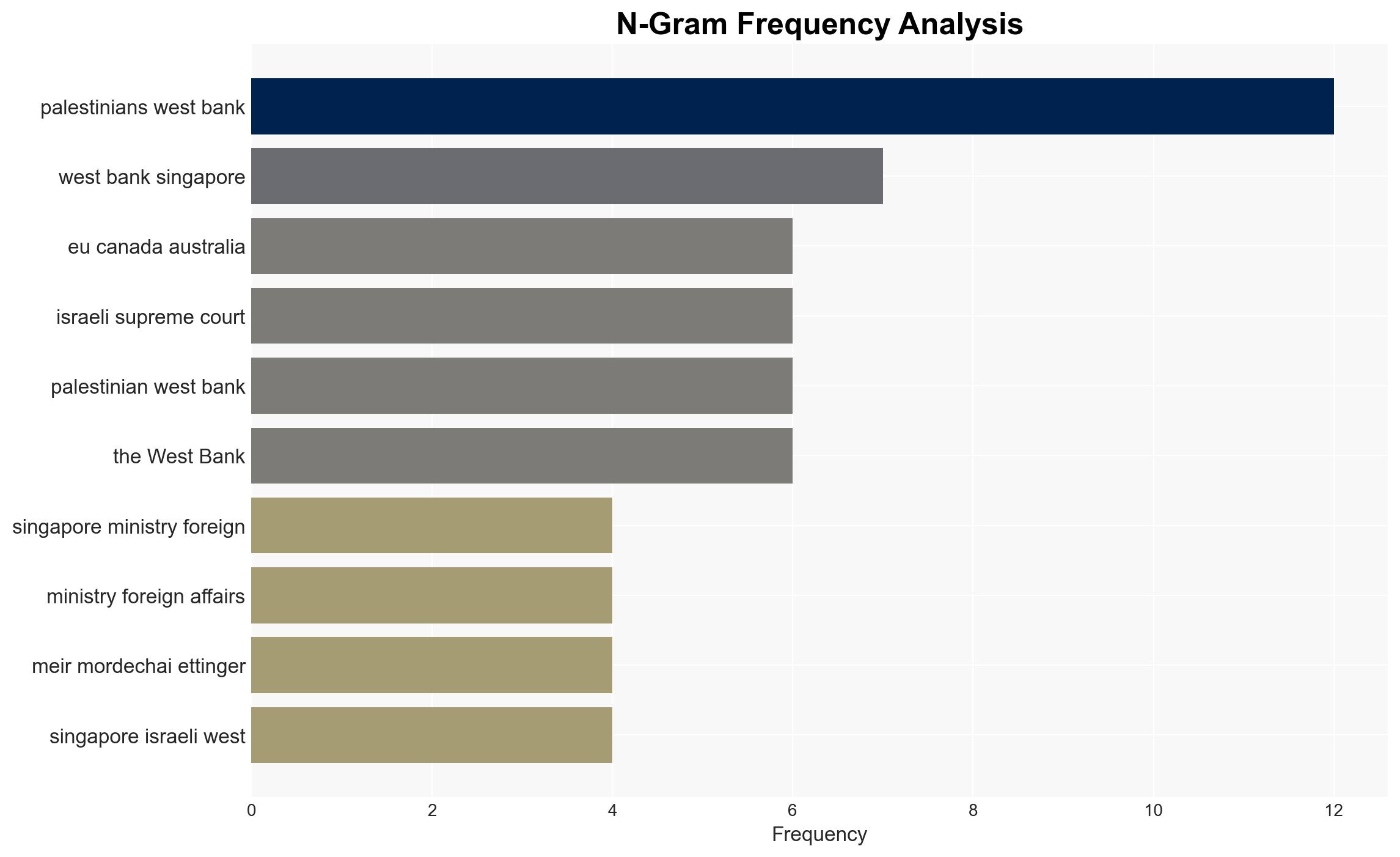Singapore imposes financial sanctions entry bans on 4 Israeli settlers for ‘extremist violence’ in West Bank – CNA
Published on: 2025-11-21
AI-powered OSINT brief from verified open sources. Automated NLP signal extraction with human verification. See our Methodology and Why WorldWideWatchers.
Intelligence Report:
1. BLUF (Bottom Line Up Front)
Singapore’s imposition of financial sanctions and entry bans on four Israeli settlers for extremist violence in the West Bank reflects a strategic stance against actions undermining the two-state solution. The most supported hypothesis is that Singapore aims to signal its commitment to international law and peace processes, with a moderate confidence level. Recommended actions include diplomatic engagement with regional stakeholders and monitoring potential retaliatory measures from affected groups.
2. Competing Hypotheses
Hypothesis 1: Singapore’s sanctions are primarily a symbolic gesture to express disapproval of extremist violence and support for the two-state solution. This hypothesis is supported by Singapore’s historical approach of using sanctions to make principled statements rather than effecting significant change on the ground.
Hypothesis 2: Singapore intends to exert tangible pressure on extremist groups to deter future violence and influence Israeli policy. This is less likely due to Singapore’s limited direct influence over Israeli domestic affairs and the relatively small scale of the sanctions.
Hypothesis 1 is more likely, given Singapore’s emphasis on international law and the symbolic nature of the sanctions as articulated by its Ministry of Foreign Affairs.
3. Key Assumptions and Red Flags
Assumptions include Singapore’s commitment to international law and the two-state solution, and that the sanctions will not provoke significant backlash. Red flags include potential underestimation of retaliatory actions by extremist groups and the assumption that other nations will not follow Singapore’s lead, which could alter regional dynamics.
4. Implications and Strategic Risks
The sanctions could lead to increased tensions between Singapore and Israeli settler groups, potentially escalating into cyber or informational attacks. Politically, this move might strain Singapore-Israel relations, though the impact is likely limited. Economically, the sanctions are unlikely to have a significant impact given their targeted nature.
5. Recommendations and Outlook
- Engage in diplomatic dialogue with Israel to clarify intentions and mitigate potential misunderstandings.
- Monitor extremist group communications for signs of retaliation or escalation.
- Best-case scenario: The sanctions reinforce international norms without provoking significant backlash.
- Worst-case scenario: Retaliatory actions by extremist groups lead to heightened tensions or cyber threats.
- Most-likely scenario: The sanctions serve as a symbolic gesture with limited immediate impact but reinforce Singapore’s international standing.
6. Key Individuals and Entities
Meir Mordechai Ettinger, Elisha Yere, Benzion Gopstein, Baruch Marzel.
7. Thematic Tags
Cybersecurity, International Law, Sanctions, Middle East Politics, Extremism
Structured Analytic Techniques Applied
- Adversarial Threat Simulation: Model and simulate actions of cyber adversaries to anticipate vulnerabilities and improve resilience.
- Indicators Development: Detect and monitor behavioral or technical anomalies across systems for early threat detection.
- Bayesian Scenario Modeling: Quantify uncertainty and predict cyberattack pathways using probabilistic inference.
Explore more:
Cybersecurity Briefs ·
Daily Summary ·
Support us





